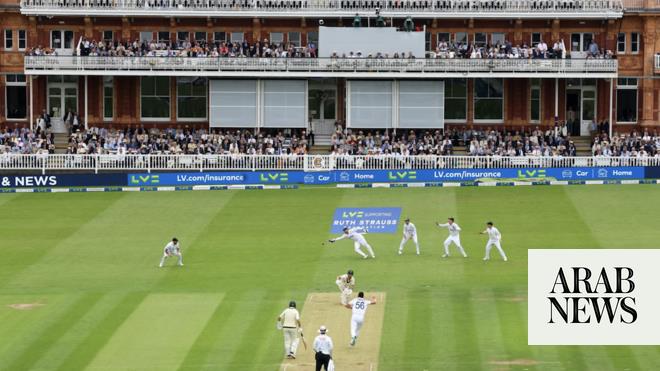
ECB apologized “unreservedly” on Tuesday after Independent Commission for Equity in Cricket released evidence of racism, misogyny, and elitism
LONDON: Those in charge of cricket in England must implement guidelines laid out in a damning report into discrimination in the sport released this week if they are to properly tackle a lack of diversity, a leading sports lawyer has said.
For the latest updates, follow us on Twitter @ArabNewsSport
The England and Wales Cricket Board apologized “unreservedly” on Tuesday after the Independent Commission for Equity in Cricket released its evidence of racism, misogyny, and elitism being entrenched in the sport.
The report found cricket boards in England had failed to prevent “structural and institutional racist, sexist and class-based discrimination,” and the ECB acknowledged the need for change.
The recent probe followed a similar report in 1999, and the fact there was a need for further examination 24 years later — which contained almost identical recommendations — showed things had not improved over the last two decades, lawyer Yasin Patel told Arab News.
He said: “The public apology, that one is forthcoming, so that’s a start, but words alone won’t be enough.
“They will (also) need to have equal pay for women, the talent pathways in the school system. That’s the biggest factor; they’re going to have to change all that.”
Patel added that this meant not just the cricketing authorities, but also local authorities, education officials, and the UK’s Department of Culture, Media, and Sport, all of which had to look at what they could do to tackle discrimination, and not make it about “filling a position, but actually doing what the recommendations say.”
The class system in England and how it acts as a barrier to young people getting into cricket was a major theme within the report, and is one that requires a proper funding strategy from the ECB to overcome.
Patel said: “That’s a funding problem, only private schools are playing, and unless we get state schools playing and clubs being available for young children, this problem will not go away. It will become more of an elitist game.”
Racism and religious discrimination were also obstacles to diversity in the sport, he added.
He said: “Class is a big thing in society. But, looking at this report, you"ll find 87 percent of people with Pakistani and Bangladeshi heritage (polled) had experienced racism or discrimination. The majority of those are Muslims.
“(Some) 82 percent of those with Indian heritage, who might be Hindu or Sikh, the same (applies), so religion comes into this, discrimination in terms of race, in terms of religion, in terms of language and cultural barriers.
“If positions of opportunity aren’t opened for those segments of society, you’re not going to have diversity.”
Patel believes an equal focus should be given to the state of the women’s game in England.
He said: “Everyone talks about women and the lack of opportunity, that we’re worried about girls’ education in Afghanistan (for example). We should be looking at our own doorstep here with a report that says ‘Actually, women weren’t allowed in the Long Room at Lord’s until just before 2000, that they don’t even get paid equal amounts to the men.’
“How"s that equal? I mean, we can’t pretend and put the veil up and say we have equal opportunity. It highlights misogyny and sexism. We have to tackle all those factors and society has to progress.”
The ECB said after the report’s release that it would work alongside representatives from the sport to build a plan of action over the next three months, which will align with the ICEC’s 44 recommendations.
Richard Thompson, ECB’s chairman, said the consultation process would be led by Clare Connor, deputy CEO, alongside a sub-group of the board including Zahida Manzoor, Pete Ackerley, Ebony Rainford-Brent, Ron Kalifa, Richard Gould and himself.
Patel said: “You’d hope the ECB and others will (learn from this), and they will embrace those who can be critical but who can be constructive, to allow change to happen.”











